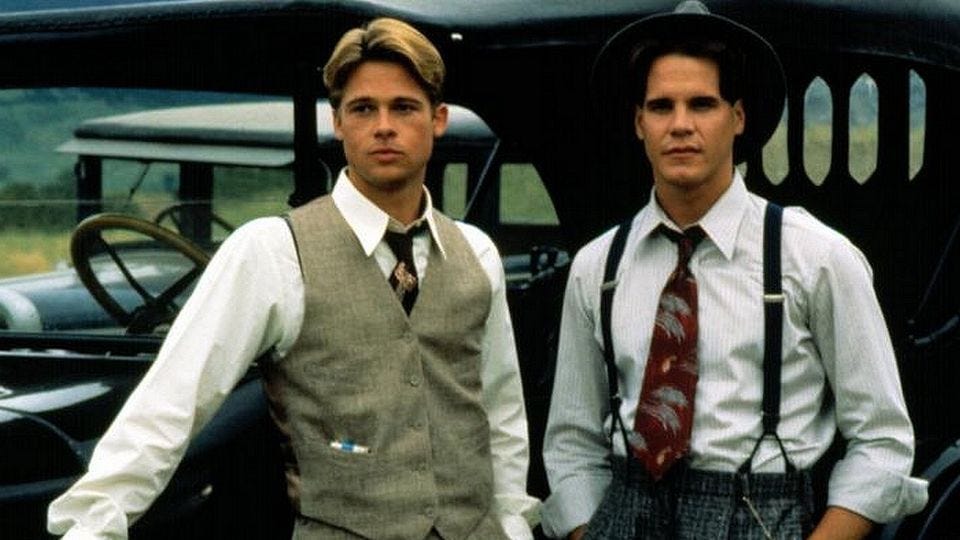
Brad Pitt isn’t as proud of his work on the 1992 film adaptation of Norman Maclean’s A River Runs Through It as you might think he would be. In a 2011 interview, he told Entertainment Weekly’s Jeff Giles why:
That was a big deal. I grew up on Redford films and Newman films and Clint Eastwood and a lot of the Westerns. It was a beautiful story and one I understood because of how I grew up…
Robert Redford made a quality movie. But I don’t think I was skilled enough. I think I could have done better. Maybe it was the pressure of the part, and playing someone who was a real person—and the family was around occasionally—and not wanting to let Redford down. But again, it’s been a long time since I’ve seen it.
I checked in with this film on its 30th anniversary and was struck not only by Pitt’s luminous, star-making appearance (despite his own down-on-himself critique) but also by the sheer poetry of it: the languishing Montanan landscapes, the winsome voiceovers, the heavy visual metaphors about fly fishing and life—all of it. And then there’s the actual poetry to contend with.

You have to shield your eyes from Pitt’s dazzle in order to focus on the three poems offered up in the film, all of them heard or recited in whole or in part not by Pitt, but by actor Craig Sheffer, who plays a fictionalized version of author Norman Maclean. If you can manage this, you begin to see a skillful and useful pattern of storytelling emerging from the selection of poems and poets on offer.
This poetic scaffolding is one of the most well-thought-out devices I’ve seen in films that engage poetry when poetry isn’t the film’s main subject.
Keep reading with a 7-day free trial
Subscribe to PopPoetry to keep reading this post and get 7 days of free access to the full post archives.



